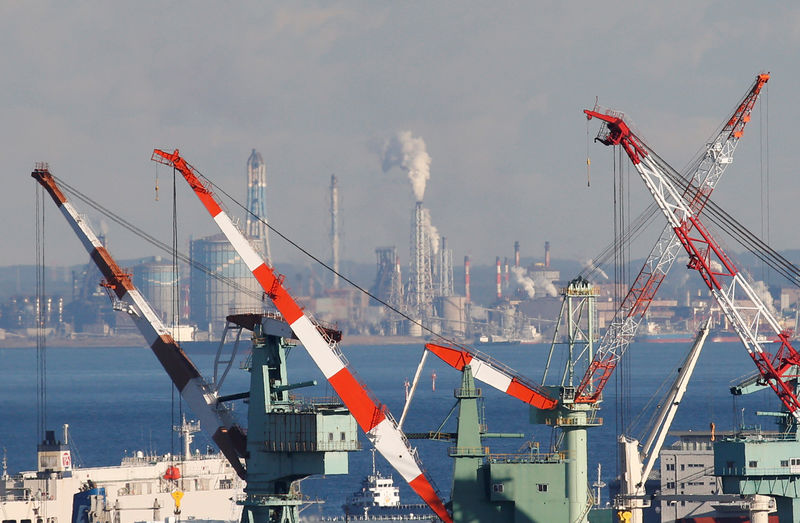TOKYO (Reuters) - Japanese manufacturing activity contracted at the fastest pace in seven months in September, in a sign of the broadening stress on the economy as global demand and growth slackens in the face of a bitter Sino-U.S. trade war.
The final Jibun Bank Japan Manufacturing Purchasing Managers' Index (PMI) fell to a seasonally adjusted 48.9 from a final 49.3 in the previous month, posting the quickest pace of decline since February.
The figure matched last week's preliminary September reading.
The index has stayed below the 50.0 threshold that separates contraction for a fifth month, marking the longest run of shrinkage since a six-month stretch from March to August 2016.
"Japan continues to suffer from the trade-led global growth slowdown," said Joe Hayes, economist at IHS Markit, which compiles the survey.
"Crucially, the stronger deterioration comes ahead of the consumption tax hike, and suggests that manufacturing and exports are both likely to have been drags on third quarter GDP (gross domestic product)."
The sales tax hike to 10% from 8% kicked in on Tuesday, the first such nationwide tax increase by the government since April 2014. The previous hike, to 8% from 5%, severely hurt consumer sentiment and triggered an economic slump.
To ease the burden on consumers from the hike this time around, the government has put in place stimulus steps worth 2 trillion yen ($18.55 billion), and refrained from increasing the tax on food and non-alcoholic beverages.
Manufacturing activity was largely pulled lower by frail output and total new orders, both of which shrank for a ninth straight month and at a faster pace than in August, the revised survey showed.
Businesses surveyed by IHS Markit indicated that underlying demand conditions had weakened, reflecting fewer sales from both domestic and foreign markets, with order book volumes reportedly falling in China, the United States and Europe.
More negative news came from Japan's factory output, with data on Monday showing production slipped more than expected in August in another blow to Japan's economy, the world's third-largest.
Separate data on Monday showed domestic demand might be stronger than thought, as retail sales climbed 2% in August from a year earlier, the sharpest rise since October last year, according to Refinitiv data.
"The service sector's ability to weather the sales tax hike in the fourth quarter will be crucial to keeping the economy afloat into the year-end," IHS Markit's Hayes added.
